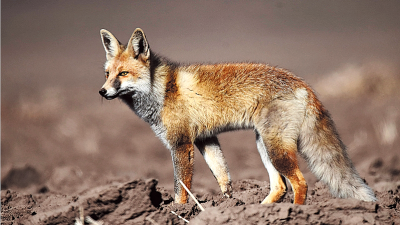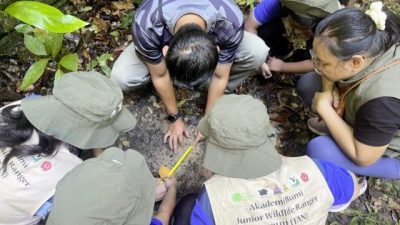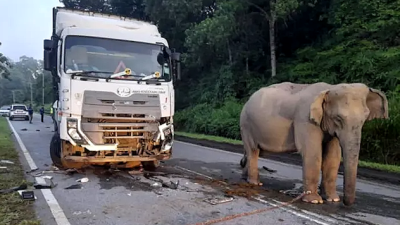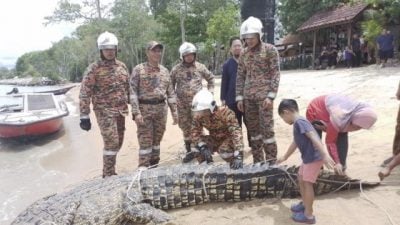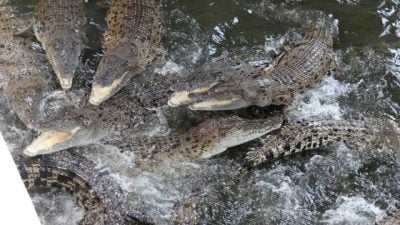The Department of Wildlife and National Parks Peninsular Malaysia (PERHILITAN) launched a Biodiversity Protection & Patrolling Program (BP3) in 2020, and Veteran-Orang Asli Program (VetOA) is one such patrolling squad manned by experienced army veterans, police cops and the aborigines, to hunt down poachers and monitor the activities of wild animals in the forests to make sure they have a safe habitat.
At the same time, PERHILITAN has also invited the involvement of non-governmental organisations to help manage the aboriginal rangers.
Under this program, the government assumes the responsibility of disbursing remunerations for the rangers, while NGOs raise funds to acquire the equipment needed for patrolling and surveillance as well as providing accommodation and boarding for the rangers.
This is the second time PERHILITAN has won a UN Environmental Program (UNEP) accolade within a span of ten years.
In 2021, PERHILITAN won the 5th Asia Environmental Enforcement Awards (AEEA) 2023 Category “Collaboration” through its “Joint Natural Heritage Protection Operation” (Operasi Bersepadu Khazanah, OBK), from the UNEP. This shows that the department’s effort in preserving Malaysia’s wildlife and natural heritage over the years has indeed won international recognition.
This could be attributed to the leadership of its Director-General Datuk Abdul Kadir Abu Hashim.
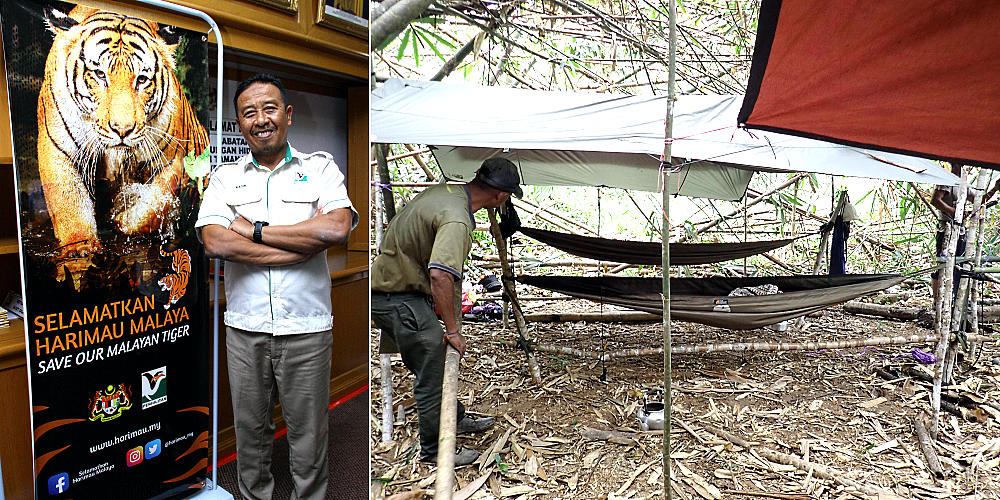
Fighting wildlife crimes
Abdul Kadir told Sin Chew Daily there has been a marked increase in the number of criminal cases against Malaysian wildlife in recent years, with illegal poaching and smuggling of wildlife being the most serious crimes on Peninsular Malaysia, based on the statistics.
He said the illegal poachers comprise not just the locals but also foreigners, including those from Vietnam, China and Thailand. Their primary targets are tigers, followed by bears and deer.
PERHILITAN is encountering a number of challenges in the protection of the country’s biodiversity. They not only need to preserve the protected animal species in our national parks, but also the precious and rare plant species there.
Abdul Kadir said PERHILITAN is duty-bound to curtail wildlife-related crimes in this country, and is playing a pivotal role in planning, coordinating and executing the department’s anti-poaching operations.
Although PERHILITAN has been entrusted with the power to carry out its animal conservation mission under the Wildlife Conservation Act 2010 [Act 716], the International Trade in Endangered Species Act 2008 [Act 686], and other relevant laws, it still faces tough challenges from the highly penetrative poachers, and will need to coordinate with other agencies to win this war against poachers.
For example, it jointly launched the OBK operation with Taman Negara in 2019.
Among the joint enforcement departments include the PDRM, the Customs Department, the Forestry Department of Peninsular Malaysia, Johor National Park Corporation (PTNJ), Perak State Park Corporation (PTNP), and other NGOs such as Wildlife Conservation Society (WCS) Malaysia, Pelindung Alam Malaysia (PELINDUNG), the Malaysian Conservation Alliance for Tigers (MYCAT), Panthera Malaysia, and World Wide Fund for Nature (WWF).
Rampant intrusions
Under OBK, Abdul Kadir said a total of 576 illegal poachers were apprehended within four years, with RM140.07 million worth of illegal catch confiscated.
Some RM28.3 million worth of prohibited items were confiscated during the first nine months of 2023 alone, with 112 poachers arrested.
Based on PERHILITAN’s records, a total of 20 illegal poaching incidents involving Malaysians and Vietnamese were recorded on Peninsular Malaysia between 2019 and 2023.
Abdul Kadir said in the face of increasingly serious wildlife crimes in the country, PERHILITAN formed 1Malaysia Biodiversity Enforcement Operation Network with the Royal Malaysian Armed Forces to battle wildlife trading activities.
He explained that VetOA’s primary mission is to help PERHILITAN patrol and monitor protected areas and permanent forest reserves on Peninsular Malaysia, with the objective of stemming illegal intrusions, poaching and logging activities.
However, he admitted that VetOA itself has no enforcement power, and will have to report to enforcement agencies once illegal activities have been detected, with the help of global positioning system (GPS), cameras and walkie-talkies.
Bigger allocations
Currently, some 1,500 community rangers have been appointed by PERHILITAN to carry out their duties at national parks, wildlife conservation areas, state parks and forest reserves totalling 32,000 square kilometres — including 1,000 on Peninsular Malaysia and 500 in East Malaysia.
VetOA has successfully helped PERHILITAN combat wildlife crimes, and its efforts and contribution have been noted by the federal government, which has set aside a bigger allocation in the 2024 Budget to double the size of the team to 2,000 people.
Abdul Kadir said VetOA will go into the forests, in particular poaching hot spots, once a month for patrolling.
In addition to wildlife animals, VetOA will also protect rare natural resources in the jungles such as agarwood, as PERHILITAN is tasked with a dual mission of conserving not just wildlife but also our national parks.
Prior to 2019, illegal poaching by locals and foreigners was rampant in West Malaysia, especially in places frequented by tigers.
Given the relatively porous land borders with Thailand, Thai poachers have sneaked into Malaysia to indulge in their illicit activities.
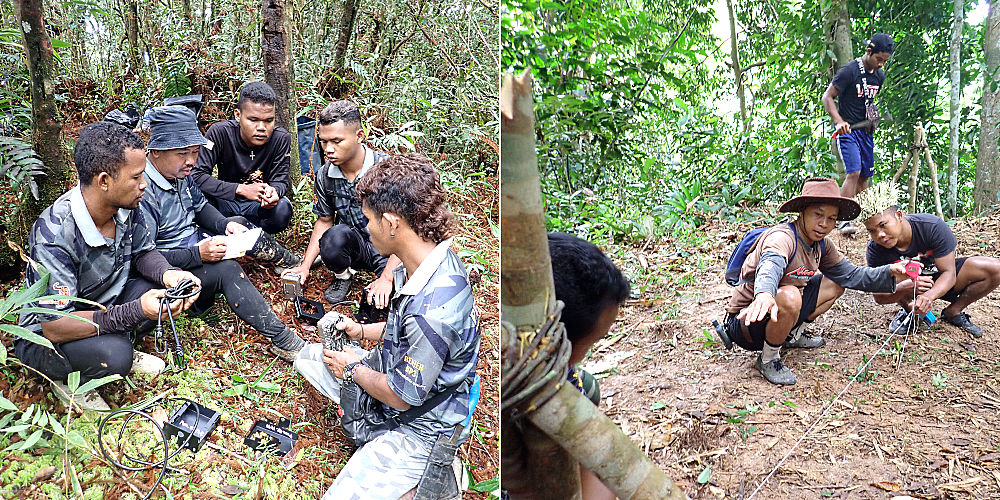
Going high-tech
To fight the increasingly serious wildlife crimes, Abdul Kadir explained that sophisticated technology has to be deployed to tackle the poachers.
An intelligence unit equipped with high-tech devices has been set up to track down the poachers.
In the meantime, PERHILITAN has also set up a wildlife crime unit (WCU) known as the Flying Squad responsible for analysing wildlife crime data and mapping out corresponding and timely counter-strategies.
The Public Service Department (JPA) has approved some 116 positions to be stationed at PERHILITAN headquarters as well as state offices, in stages.
WCU was established with the objective of curtailing criminal activities impacting the stability and sustainability of the country’s biodiversity, in particular the growingly sophisticated cyber-crime.
Following the enactment of the Wildlife Conservation Act (Amended) 2022, a total of 44 sections have been revised and will take effect from February 1 this year to increase the penalties imposed on perpetrators of wildlife crimes, including collection, killing and smuggling of wildlife.
Abdul Kadir also said PERHILITAN set up a National Wildlife Forensic Laboratory (MFHLK) in 2015 to gather, compile, manage and analyse genetic samples of Malaysian wildlife.
He explained that MFHLK’s existence is of paramount importance in the successful indictment and eventual conviction of criminals, as the wildlife animals’ DNA data can be a powerful evidence against a suspect.
A total of 3,666 DNA samplings were analysed and identified by MFHLK’s forensic experts between 2019 and 2023.
Read:
ADVERTISEMENT
ADVERTISEMENT






